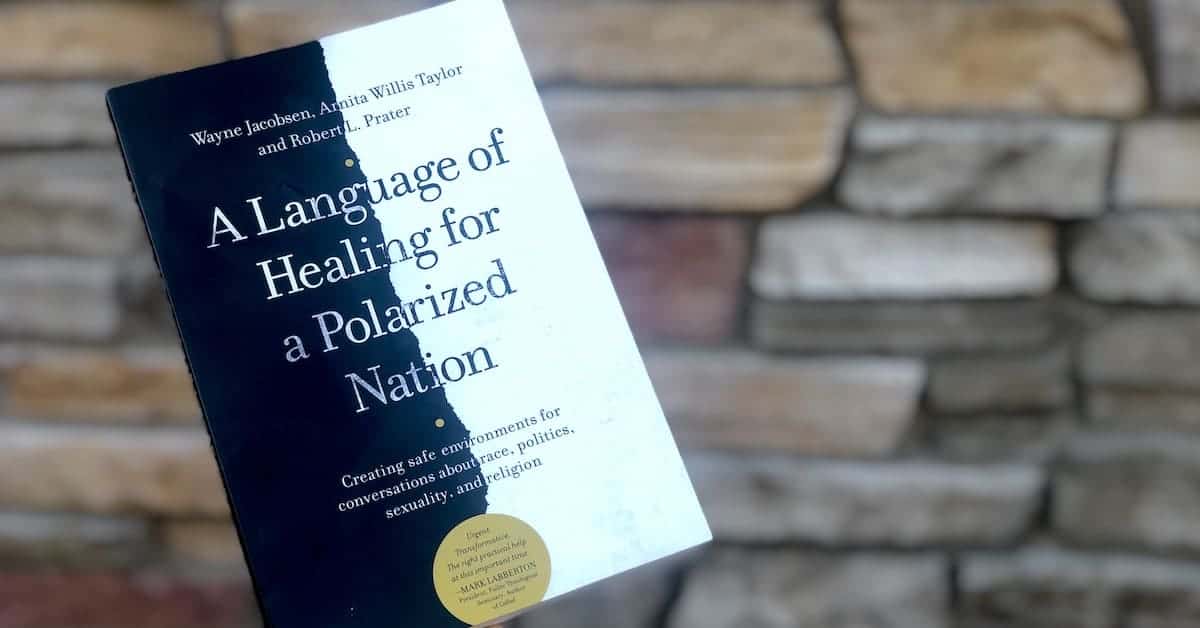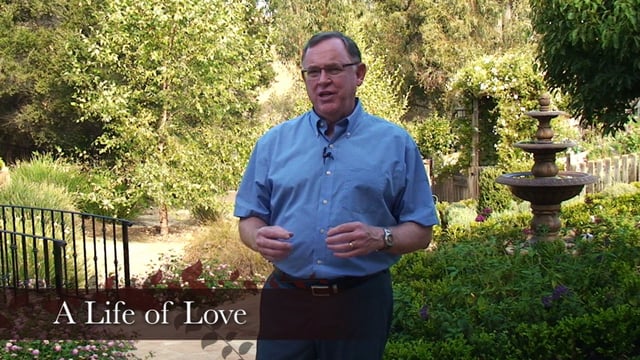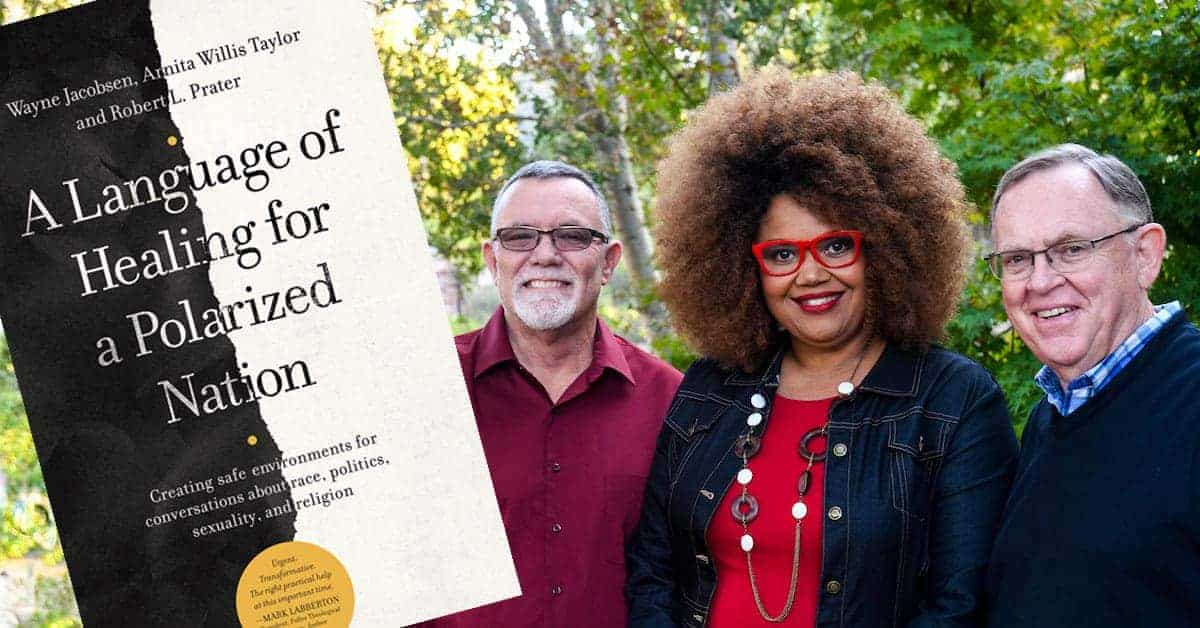I’m delighted so many of you are reading A Language of Healing for a Polarized Nation and are putting those things you’ve learned into practice. I love hearing that people are exploring new relationships with those who are different, discovering that understanding and respect is a freer way to live than in fear and animosity. I know working on this book has changed every relationship I have in the world because I see people differently and engage people with more compassion and generosity.
But I do get the occasional email or comment from someone who immediately takes our premise to the extremes. Will this work with abusive people, or evil ones? In the book, we make clear that about 22% of people have to be right about everything and treat those who don’t agree with them with anger and hostility. No, you won’t be able to find common ground with them. But that leaves 78% of the people you know who are able to have a respectful conversation even if you do have significant differences. If they are hurt, they can talk it out and find or extend forgiveness for other people’s weaknesses, including yours.
So, what about abusive people, who always accuse or berate us? You don’t have to get along with people like that, or be their victims. If you can, avoid them; if you can’t, give them a wide berth. Life is too short to waste significant time with toxic people. If they are family you can’t always avoid, you can still be kind and respectful, but put your focus on the other 78% who don’t exhibit such arrogance.
And what about people we consider evil? The other day someone sent me this comment: “How did Jesus deal with the Pharisees and Sadducees. Was it what you’ve written. Did He ‘engage them with generosity and kindness?’ Not from anything I’ve read in Scripture.”
I’m surprised by the comment and saddened for people who define life in such extreme terms. I get it. I grew up in a religious world where there was a home team God loves and an away team he hates. That gave us the freedom to despise them, too. But I’m afraid the person who made the comment here, hasn’t read enough Scripture. In John 6:35, Jesus said, “But love your enemies, do good to them, and lend to them without expecting to get anything back. Then your reward will be great, and you will be children of the Most High, because he is kind to the ungrateful and wicked.” (Emphasis mine.)
We read our Bibles wrong if we see Jesus being abusive to the Pharisees. Jesus was generous and compassionate to them. He told them the truth, even when they didn’t want to hear it, but love does that. Even in the end, when he calls them hypocrites, he is still hoping they will see what’s real and run under the safety of his wings, like the chicks under the hen. But they would not have it. Yes, you can love even Pharisees,’ he did.
A Language of Healing... is about building bridges of kindness to others, not to be afraid of our differences, and to discover that the vast majority of people simply want the same things for themselves that you want. You can share disagreements respectfully, work through problems with graciousness all while demonstrating compassion. We encourage people to start out where it’s easy, not with the most extreme relationships in their lives.
If you haven’t read the book yet, give it a try. If you have, and want to interact about it, feel free to write me or comment here.
I love what Stephanie wrote about the book….
If ever a book was needed to help us understand the common ground of our humanity, it is now. Today, when so many long to practice peace but are at a loss to go about it, A Language of Healing provides hope, guidance, and inspiration. Communicating effectively requires finding—and then walking in—the shared space between us. In a world of runaway social media and chaotic twitter feed we need to find a way back to each other… back to our humanness. A Language of Healing resounds with a strong, collective voice that arises out of the diverse backgrounds and perspectives of the authors. As they model dialogue and work together to fashion a solution, motivation toward peace and reconciliation are sure to emerge in readers who are open to the transforming power of God through Christ. This is a gift from God!
Stephanie Bennett, PhD, Professor of Communication and Media Ecology, Palm Beach Atlantic University and author of the Within the Walls trilogy








